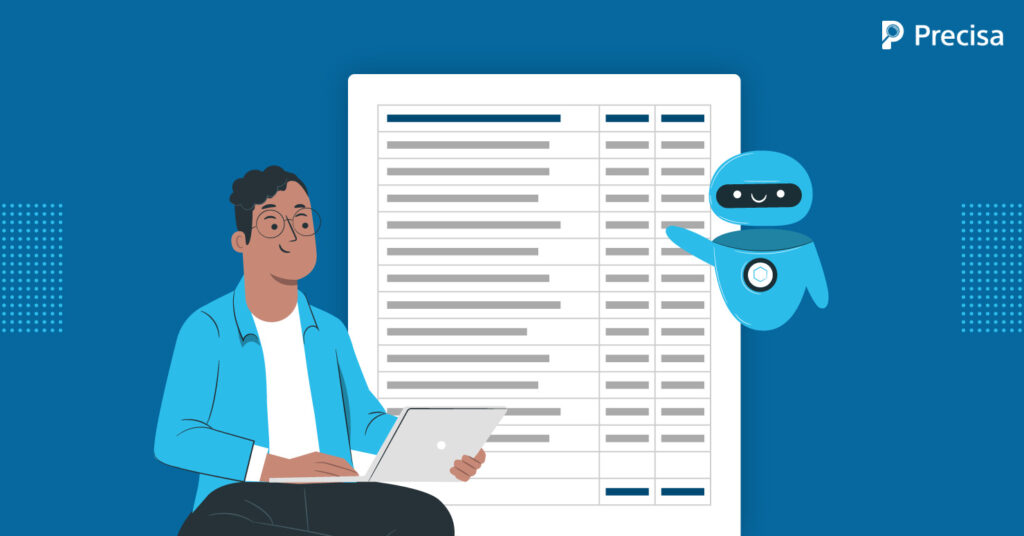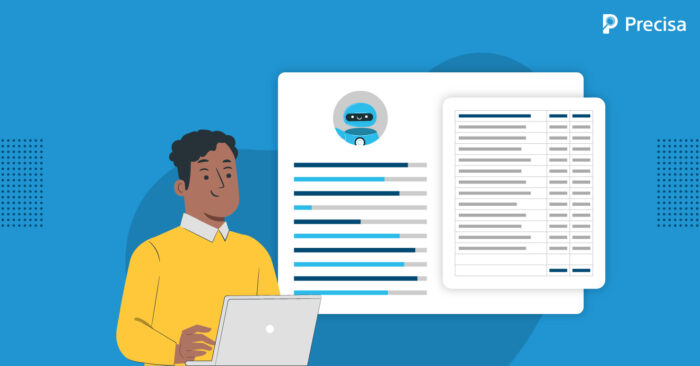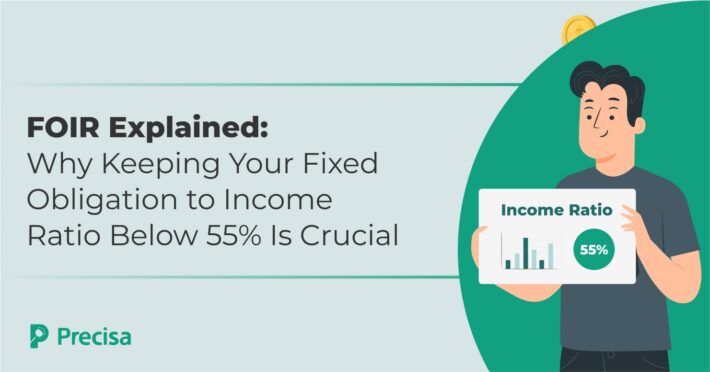The Role of AI in Automating Balance Sheet Analysis for Credit Appraisal

Over the last decade, artificial intelligence (AI) has made a noteworthy impression across different industries, and finance is no exception. Banks and other financial institutions are increasingly favouring the inclusion of AI across various functions, including balance sheet analysis for credit appraisal and bank statement analysis.
This trend will gain further momentum as banks continue to find innovative ways to gain a competitive edge in the increasingly crowded and competitive landscape. McKinsey predicts that AI-powered solutions could add around $1 trillion in additional value to global banking as they are likely to replace mundane and cumbersome manual activities.
Traditionally, balance sheet reconciliation was challenging for accounting teams due to several reasons, including manual processes, lang-drawn data capturing from multiple sources, limited system integration and status reporting.
The arrival of AI is tipped to eliminate these hurdles and automate different banking processing, such as balance sheet analysis for credit appraisal. This article dives deeper into understanding how AI could simplify credit appraisal by automating balance sheet analysis. Without further adieu, let’s begin.
Banks Eye AI and Machine Learning to Improve User Experience and Gain Advantage
The 2008 financial crisis brings back unpleasant memories for multiple banks and regulators worldwide. The financial crisis served as a wake-up call for financial institutions to tighten their credit appraisal processes and leave no room for error. Additionally, financial institutions are rallying resources to formulate transparent and auditable risk measurement frameworks to facilitate smooth decision-making.
Machine learning and AI-driven technology will find a plethora of applications in the Banking, Finance Services, and Insurance (BFSI) and credit risk analysis is at the top of that list. This is why around 85% of firms that provide financial services are using AI in some form to stay ahead of the curve and provide a spotless user experience.
Furthermore, AI-driven solutions have added genuine value across the entire credit value chain, right from the initial underwriting process to balance sheet analysis for credit appraisal.
Let’s examine some of the most noteworthy use cases of AI during credit appraisal or credit risk assessment.
AI in Finance Paves Way For Automated Balance Sheet Analysis for Credit Appraisal
If past trends tell a story, the BFSI sector has remained at the forefront while embracing new technologies. This is because of the increasing demand for security measures to mitigate risks, improve user experience, enhance transparency, and improve the efficiency of different financial operations.
Today, AI-powered tools and APIs are extensively used to automate a range of financial tasks, including balance sheet analysis and credit appraisal. Here is how the application of AI and machine learning is transforming risk assessment and balance sheet analysis.
1. Risk assessment for individual customers
Although a majority of borrowers fall under the “non-defaulters” category, it is crucial to keep an eye on the small set of defaulters. Thanks to its immense potential and capabilities while dealing with large data sets, AI plays an important role in identifying frauds, outliers or unusual patterns and inconsistencies in a customer’s financial data.
Moreover, AI-powered analysis tools can highlight and flag these errors or inconsistencies to ensure financial analysts and auditors are made aware of potential irregularities during credit appraisal.
2. Seamless data extraction and extraction
What makes AI such a phenomenal and groundbreaking technology to work with is its capability to process and analyze massive amounts of data. With the help of AI algorithms, users can effortlessly extract essential financial information from balance sheets and other financial documents, which greatly eliminates manual data input and also minimizes the risk of errors.
Besides, AI-powered algorithms can also be used to detect potential frauds and other irregularities in financial statements, aiding users in making accurate and informed decisions.
In addition, AI can also be used to generate insights from the data, helping users gain a better understanding of the financial performance of their business. All in all, AI has revolutionized the way businesses are managed and operated, making it an invaluable asset that any business should take advantage of.
3. Assigning credit score for a commercial entity
Banks assign credit scores to commercial entities based on a range of factors and after going through their balance sheets. Traditionally, this process requires a considerable degree of investment, resources, expertise, and time. Typically, banks would turn to specialized credit rating agencies to conduct a thorough evaluation of financial and non-financial parameters.
That said, not every bank or financial institution can afford to hire credit rating agencies, and this is where AI steps in. Artificial intelligence automates balance sheet analysis for credit appraisal to track various data patterns based on the overall profile of a commercial entity.
4. Smooth and accurate scenario analysis
Scenario analysis is an invaluable resource for businesses to make data-driven decisions and create comprehensive financial plans. By leveraging AI models, businesses can simulate various scenarios based on alterations in balance sheet variables, such as sales growth, cost structure, and debt levels, to gain insight into potential effects on their financial results.
This form of analysis enables businesses to identify risks and opportunities in a timely fashion, empowering them to effectively devise and execute strategies that align with their financial objectives.
Wrapping It Up
Wrapping It Up
As seen in this blog, AI-backed solutions automate balance sheet analysis, saving time and resources and, most importantly, transforming balance sheet analysis for credit appraisal. That said, the black-boxed nature of AI and machine learning could hamper the adoption levels across banks and other financial institutions worldwide.
Additionally, there is also a certain degree of risk in overfitting the data, as ML models are more sensitive to outliers than traditional models.
As more and more banks take crucial steps toward striking a balance between performance and transparency, AI will play an important role in automating balance sheet analysis for credit appraisal in the upcoming years.
Precisa provides end-to-end cloud-based bank transactions and financial data analytics tools for banks, wealth management, insurance, and NBFCs. We offer a wide range of APIs that seamlessly integrate with your existing tech stack to provide exceptional analytical insights and automate balance sheet analysis for credit appraisal.
Request a demo to learn more about our solutions and APIs.




